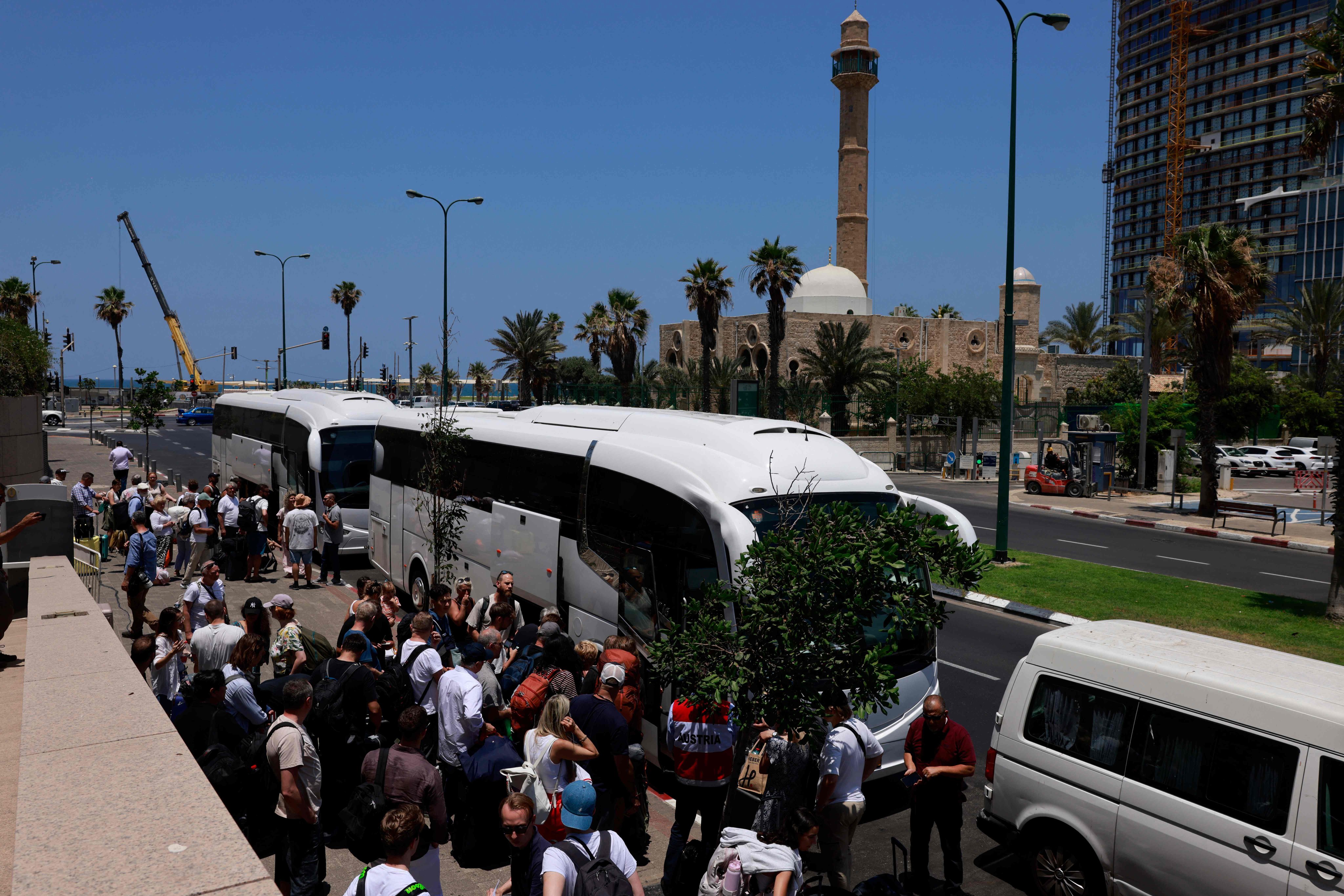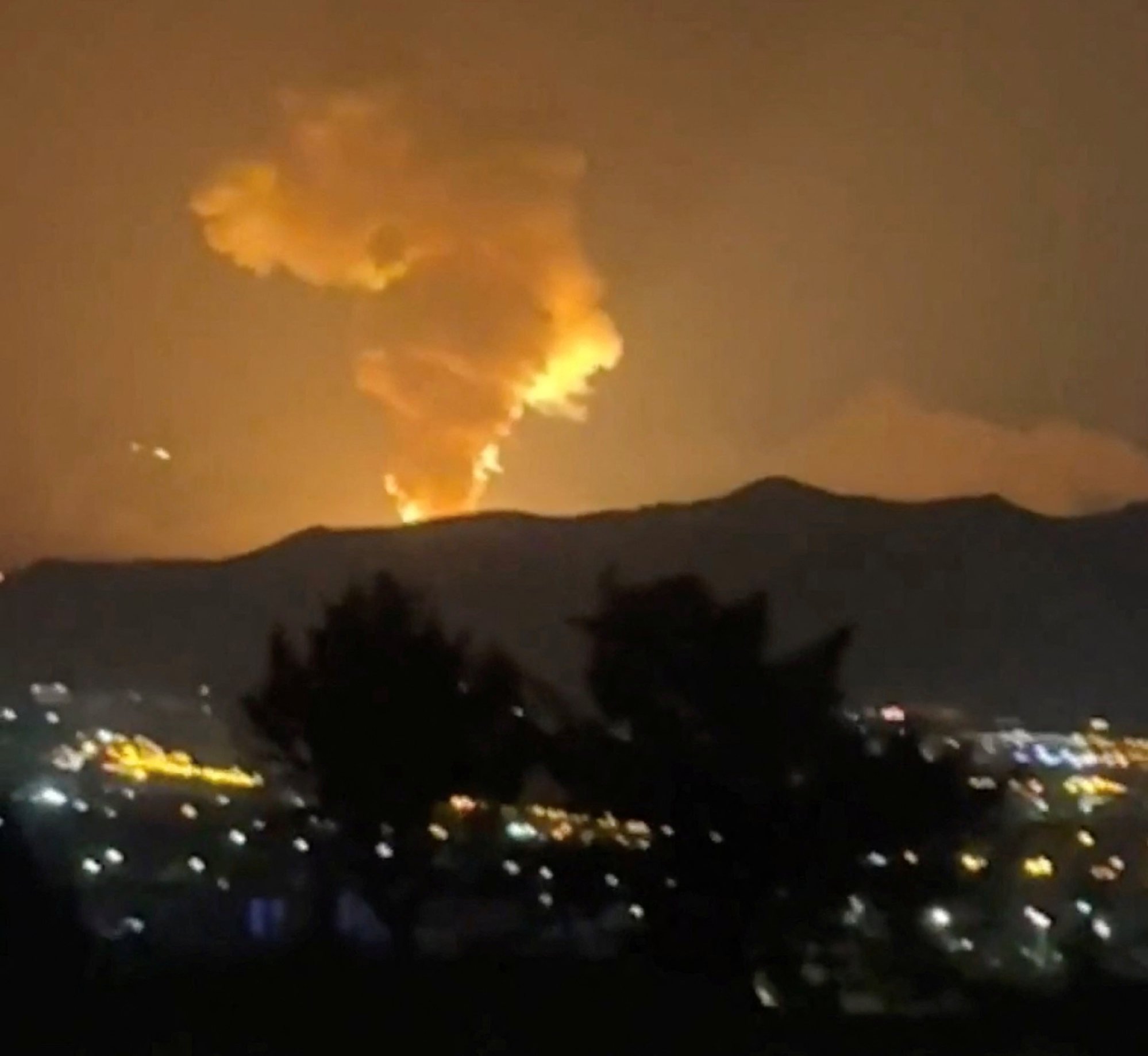Southeast Asia scrambles to get citizens out as Israel-Iran conflict escalates
Thailand, which has 40,000 citizens living in Israel and 300 in Iran, has mobilised military planes to bring them home

Southeast Asian nations are urging the evacuation of their citizens from Iran and Israel as the air war escalates, with Malaysia warning of “rapidly deteriorating conditions” and Thailand preparing to bring back tens of thousands of migrant labourers from Israeli farms and factories.
Thousands of Iranians have fled the capital of Tehran this week, since Israel launched strikes that have killed more than 220 people, mostly civilians. Two dozen have been killed in retaliatory missile attacks on Israeli territory.
The escalating hostilities have triggered fears they could spill over into a regional conflict that threatens global security and potentially chokes off a crucial supply route for crude oil and gas from the Middle East.
Malaysia’s government on Wednesday said that efforts were underway to evacuate all Malaysians from Iran by Friday.
“The number of Malaysians in Iran, including those who are working, studying or travelling, is relatively small,” Communications Minister Fahmi Fadzil told a news conference broadcast on social media.

Earlier, Malaysia’s foreign ministry said that all those registered with its embassy in Iran were safe, but warned that the situation “remains highly volatile and may worsen without warning”.
“All Malaysians in Iran are strongly urged to leave the country immediately by any available means,” the ministry said in a statement issued late Tuesday.
Malaysians cannot travel directly to Israel due to the absence of diplomatic relations between the two nations.
The ministry did not say how many Malaysians are currently in Iran. But the latest publicly available government data showed there were fewer than 50, including embassy staff and their dependents, in the country in 2020.
Malaysia was the second Southeast Asian nation after Thailand to issue an advisory for its citizens to evacuate from Iran.
Thai government spokesman Jirayu Houngsub said on Tuesday that the military had been instructed to prepare planes to bring home about 40,000 citizens living in Israel and 300 in Iran.
In January, five Thai farm workers were released in Gaza after being held hostage for almost 500 days by Hamas. They were abducted during the October 7, 2023, attacks that killed about 1,200 people in southern Israel, which triggered the ongoing Israel-Gaza war.
Nearly 50 Thais died in the Hamas-led attack or in detention later in Gaza, mostly farmhands working for Israelis. The body of Nattapong Pinta, the last Thai hostage, was recovered by Israeli forces during an operation in Rafah earlier this month.
Indonesia’s foreign ministry said on Monday that it was in constant communication with its 386 citizens in Iran and 194 in Israel.
So far, no Indonesians have been affected by the conflict, but over 50 of them on short trips have been stranded in Israel, Jordan and Iran after the closure of airspace over the conflict zone, the ministry said. It did not say how it intended to bring home its stranded citizens.
The Philippine embassy in Israel said on Tuesday that about 150 Filipinos have requested help to return. However, most of the 30,000-strong community, primarily domestic workers and carers, are reluctant to leave their wards behind.
Filipinos in Iran have been advised to be on alert and prepare an emergency “go bag”, The Manila Times reported. There are at least 1,180 Filipinos in Iran, most of whom are married to Iranians.
Israel began its bombardment of Iran last Friday, which its government said was aimed at eliminating Tehran’s ability to develop a nuclear weapon. Iran retaliated with missile strikes of its own, particularly on the largest city of Tel Aviv, where 24 civilians were killed, according to Israeli officials.

The escalating hostility has put growing pressure for direct intervention by the US – Israel’s biggest supporter and supplier of arms – to end Iran’s nuclear programme.
The US military is deploying more fighter planes to the Middle East and extending the deployment of other warplanes in the region. Earlier, a large number of US military refuelling aircraft were reported to have flown to Europe and an aircraft carrier deployed to the Middle East after Israel launched its “pre-emptive strike” on Iran on Friday.
US President Donald Trump on Tuesday called for Iran’s unconditional surrender, saying that the US had no plans to kill Iran’s leader “for now” but warned that America’s patience “is wearing thin”.
“UNCONDITIONAL SURRENDER!” he posted on his social media platform Truth Social, and later to his account on X.
Additional reporting by Reuters, Agence France-Presse